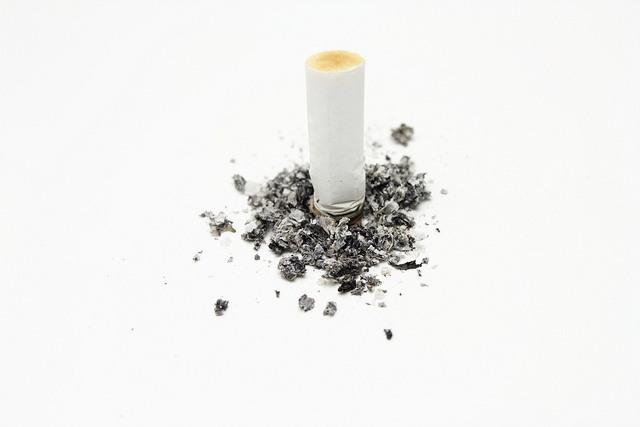
Did they or didn't they? Exxon and its decades-long research on the implications of fossil fuel technology continues to garner input from experts around the country. Among those who are calling for Exxon to be investigated is a former Department of Justice prosecutor who helped win racketeering convictions against tobacco industry execs in 2006.
Sharon Eubanks was a DOJ lawyer on the tobacco case when U.S. District Court Judge Gladys Kessler ruled that Philip Morris USA, R.J. Reynolds Co. and other tobacco manufacturers had conspired for decades to mislead consumers about the dangers of smoking.
Last week, that landmark finding was resurrected as a reminder of the potential impact of the Racketeer Influenced and Corrupt Organizations Act (RICO) and the power it can wield when it comes to corporations and industries that don't live up in action to the research they conduct about consumer risk.
The fact that Exxon knew there was an increased risk associated with its product, but allegedly chose to hide that information from the consumer, merits investigation by the DOJ, Eubanks told ThinkProgress earlier this month. According to a Los Angeles investigative report, Exxon may have known for decades that global warming would be exacerbated by the carbon emissions associated with oil and gas products.
“I think a RICO action is plausible and should be considered,” Eubanks said. “The cigarette companies actively denied the harm of cigarette smoking, and concealed the results of what their own research developed. The motivation was money, and to avoid regulation.”
While the tobacco companies were convicted under RICO, they weren't required to pay for smoking-cessation for victims, citing a 2005 appeals court ruling that disallowed penalties for past conduct. It isn't clear whether Exxon would be required to pay for past actions.
Meanwhile, oil and gas industry advocates are fighting back. A senior fellow from the Heartland Institute, which frequently speaks out against climate change science, attempted to deflate the issue by alleging that Democratic presidential candidate Bernie Sanders' "false and incendiary" call for investigation was really meant "to divert [public] attention from his bumbling performance" at a recent presidential debate.
What's interesting is: The data the author, James Taylor, used to assert that the reason why Exxon didn't disclose its 1970s research to the public (or modify its stance toward oil and gas production to fit that research) is that "[some] Exxon scientists believed global warming was a serious concern while others did not, and [ultimately], Exxon’s top management sided with those scientists concluding humans are not creating a global warming crisis."
Translation: The company made a decades-long bad call on interpreting its own research.
To defend this point, Taylor notes that the Intergovernmental Panel on Climate Change's scientific projections for global warming actually overshot the amount that the atmosphere's temperature was expected to rise per decade. Instead of rising by 0.30 degrees Celsius between 1990 and 2010, says Taylor, it only rose by 0.10 degrees C.
Among the many sources of data he doesn't mention is the temperature spike that occurred during that same time at the North Pole. The mean temperature he offered as proof didn't reflect the jump in temperature in the Arctic in the 1980s, that later increased in frequency starting around 2006 (to see this data, pull down the menu at the top right and pick North Polar).
For disclosure, Taylor is careful to mention that Heartland Institute has been a benefactor of Exxon's success in the past, as the company served as a "minor donor to the lobbying organization." In fact, its donations were substantial for the period of time it provided funding. According to Sourcewatch, Exxon's "small" donations amounted to $765,500 over an eight-year period, and have averaged most years, around $100,000.
"[The] oil industry has little to fear from carbon dioxide restrictions," says Taylor, who maintains that many oil companies actually fuel global warming alarmism to their own benefit. It's one accusation for which Exxon, with its previously undisclosed data on the elevated risks of climate change for the 21st century, can probably prove it isn't guilty.
Image credit: Matt Trostle
Jan Lee is a former news editor and award-winning editorial writer whose non-fiction and fiction have been published in the U.S., Canada, Mexico, the U.K. and Australia. Her articles and posts can be found on TriplePundit, JustMeans, and her blog, The Multicultural Jew, as well as other publications. She currently splits her residence between the city of Vancouver, British Columbia and the rural farmlands of Idaho.














